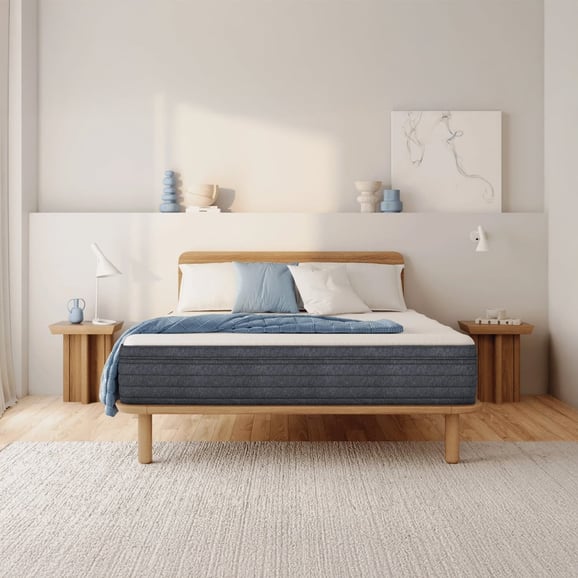A teenager is super energetic, so full of life, yet so very sleepy. The teenage years are ones full of stories of growth, self-finding, and development. It is no surprise then that teenagers need more sleep when compared to adults.
An average teenager needs to be asleep a third of the day every day, that is, at least 8 hours per night. Most studies recommend as high as 10 hours. For the most part, the need for sleep in teenagers is purely biological. Let’s see some of these reasons.
A Shift in Circadian Rhythm
Every human has a body clock. This internal clock controls the circadian rhythm which in turn controls when an individual feels sleepy and when they do not. On a normal day, your circadian rhythm makes you sleep at night and makes you alert and awake at night.
When puberty starts, the hormonal surge causes a shift in the circadian rhythm. So a child who usually would fall asleep around 8 or 9 pm becomes a teenager who doesn’t fall asleep till around 12 or 1 am. Remember, that this teenager needs about 8 hours of sleep. So he is still asleep at 8 or 9 am.
Sleep/Wake Balance
Teenagers often associate all-nighters with maturity and growth. With their newfound superpower of full alertness, till 12 or 1 am, they decide to push the boundaries and not hit the bed till 3 or 4 am.
This results in a teenager that is grumpy and sleepy throughout the day. The reason for this is not far-fetched. Their sleepiness is because the delicate balance between sleepiness and wakefulness has been tipped in favor of sleepiness. This is by far the most common reason why most teenagers seem so sleepy.
The Educational Schedule
Remember how we mentioned that with puberty comes a shift in the circadian rhythm. So a tenenager needs 8 -10 hours of sleep per night but now falls asleep at around 11pm or 12am. For him/her to get the full complement of recommended sleep, the individual should be asleep till 7 or 8 am.
That really is wishful thinking because most teenagers have to be in school at 8 am. Which means he/she has to be up latest by 7am, in most cases much earlier than that. The demanding nature of the modern school system does not take into account the sleep requirements and basic physiology of a teenager. In fact, 75 percent of teenagers in the United States do not get enough sleep and the school system deserves a huge chunk of the blame.
Backlog of Sleep
A teenager has to deal with a shift in their circadian rhythm. He/she has to wake up early for school, stay up late into the night sometimes pulling all-nighters as he/she has to prepare for exams, tests or quizzes. Some teenagers have part time jobs, multiple extracurricular activities. Still others have to look after their younger siblings along with numerous other chores that they have to get done. All these activities are impossible to cram into the 14- 16 hours a teenager has left if he/she sleeps the recommended 8-10 hours for their age group.
This means that the teneagers get a meager 5-6 hours of sleep daily, sometimes even less. This constant lack of sleep creates a massive sleep deficit or sleep backlog that perpetually leaves the teenager tired and fatigued.
The Need for Growth
The teenage years are associated with growth spurt. The growth includes not only changes in physical characteristics like height, hair growth among others. There is also emotional growth that teenagers experience. The teenage years are when most of us first learn to love. Most people have their first love as teenagers amongst other firsts.
All this growth requires sleep. Physical growth, especially height for example, is greatly dependent on sleep. So, a teenager’s sleepiness is part of the body’s way of asking for growth.
Sleep Serves a Protective Function
Studies have shown that sleep helps teens cope with discrimation and other similar problems. Tiffany Yip along with Yijie Wang of the department of psychology at Fordham University conducted a research to that effect. She found some teenagers used sleep as a conscious or subconscious coping mechanism.
Their study conducted across 2 weeks among 256 ethnic/racial minority adolescents revealed that teenagers who experienced some form discrimination but were able to get a good night’s sleep coped better the next day than their counterparts who couldn’t get a good sleep.
Although their study was directed towards racial discrimination, it is safe to say that teenagers who were able to get a good night’s sleep are able to deal with stress the following day better than their counterparts who could not sleep well.
Other Factors
Most of the reasons teens sleep so much is more often than not due to a physiological response, rather, due to normal occurrences that can be remedied by making a few behavioral changes. Sometimes though, some sleep more because of sleep problems. Some of the more common ones are:
Sleep Disorders
Disorders like Obstructive Sleep Apnea, a problem caused by collapse of the airways at night can lead to inadequate sleep at night which in turn leads to day time sleepiness.
Another sleep disorder is Narcolepsy. People with this sleep disorder feel a severe urge to sleep during the day irrespective of how much sleep they got during the night.
Circadian Rhythm Sleep Disorders can also cause daytime sleepiness. It differs from the usual circadian rhythm sleep as people with this disorder experience a complete opposite of the normal rhythm. They are sleepy during the day and alert at night.
Diet and Drugs
Caffeine is a known stimulant. Therefore, a teenager that is addicted to coffee will have a hard time falling asleep. Same goes for a teenager who smokes as nicotine has a similar effect on the brain. As the individual is stimulated to stay awake more once the effect of the meds wear off, the body demands the sleep it needs resulting in a sleepy teenager.
Conclusion
So there you have it. The reason for a teenager’s sleepiness is mostly due to physiological reasons associated with that time of their life. If however, with appropriate changes to accommodate the various physiological changes does not result in reduced daytime sleepiness, it might be necessary to see a sleep specialist.














